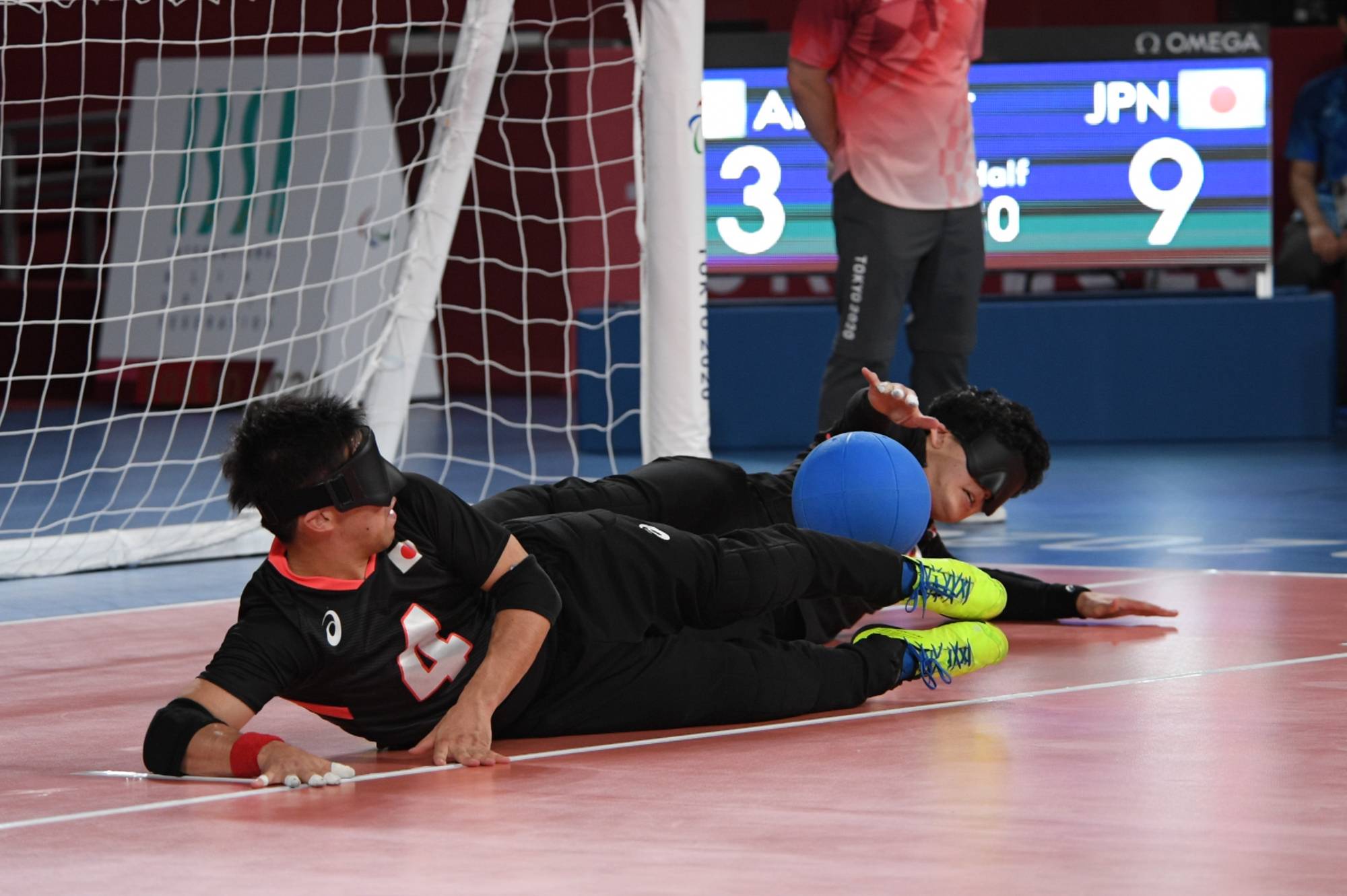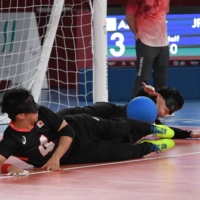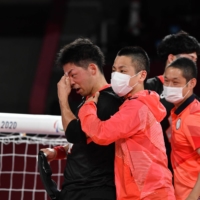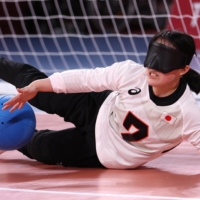Officials ask for silence between points during goalball matches, but the atmosphere is alive with activity nonetheless.
You just have to know where to listen.
The sound of footsteps can give away offensive positions, the rustling of clothes can provide ideas about defensive alignments and even the smallest, most insignificant sound can make the difference in a match. Sound can also be used to deceive if one side is crafty enough.
Silence isn't just golden in goalball, it's everything. It's a Paralympic sport played by visually impaired athletes who have to rely on their sense of hearing and communication between points in order to gain an advantage.
"Communication, above all else, is the most important thing in goalball," Japan's Kazuya Kaneko said at Chiba's Makuhari Messe on Wednesday. "Then when it's quiet, you just have to really focus on one point at a time."
As one of two Paralympics events without an Olympic equivalent, boccia is the other, many fans may be getting their first taste of the sport during the Tokyo Games.
"It's exciting," Sevda Altunoluk, one of the stars of Turkey's women's team, said. "If they (fans watching at home) follow us they can see what we're doing and maybe get inspired."
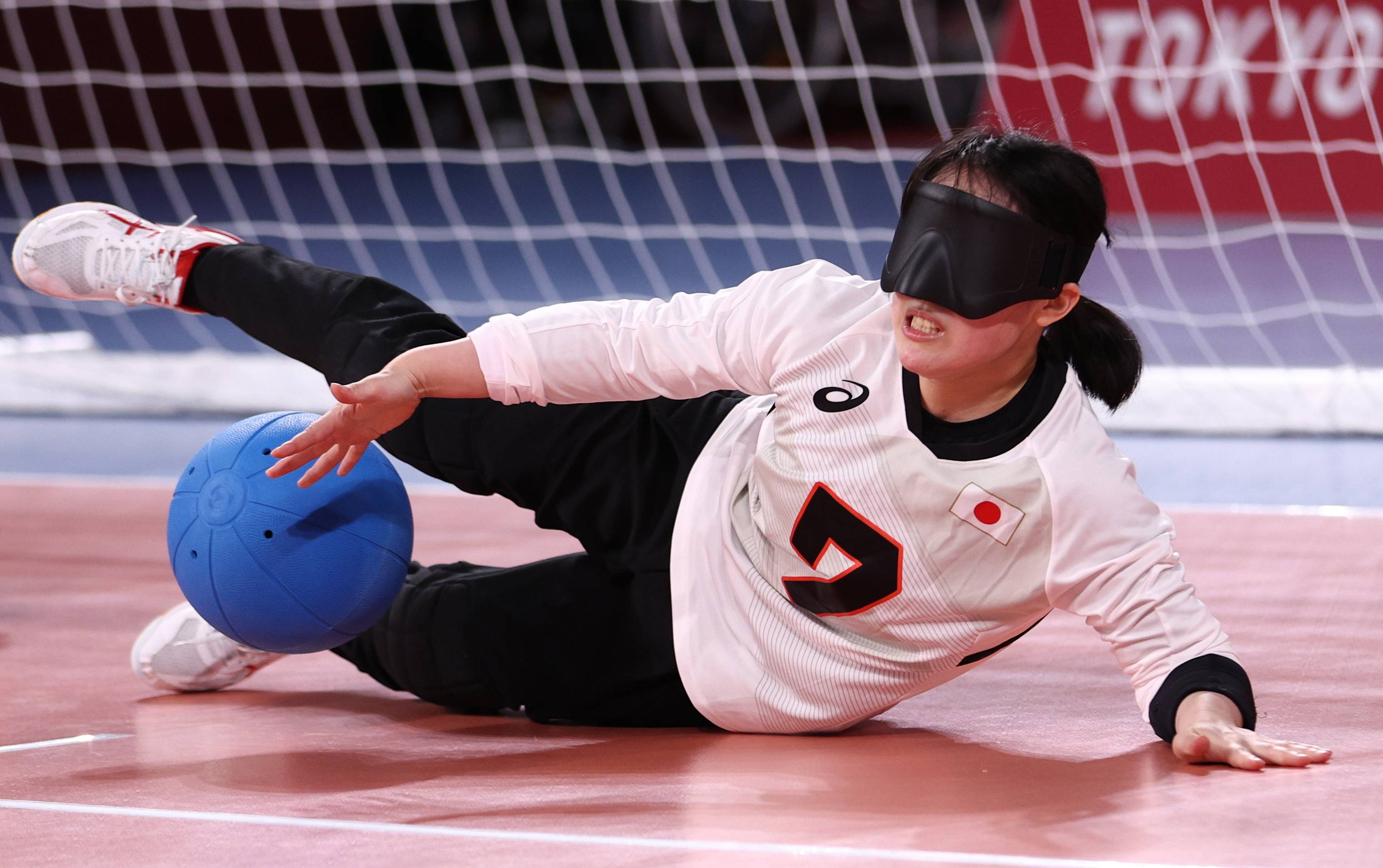
Each point begins with a call for those in attendance to be silent. That is so players can hear the sound of the ball, which has a bell embedded inside.
Two teams of three occupy each end of the court (which is 18 meters long and nine meters wide), with the team holding the ball seeking to put it in the opposing net and the other side defending its goal.
Offensive players employ a number of techniques, some roll the ball straight, some spin as they throw to generate more power and others try to make the ball bounce. On the other side, the defenders hurl themselves at the ball when they hear it coming in an attempt to block it.
While the athletes are visually impaired, the severity of their impairments is not the same. Thus each athlete wears a visor to ensure the playing field is level.
Goalball has been a medal event at the Paralympics since the 1976 Games in Toronto. The sport will be played at the Tokyo Games every day until Sept. 3.
It was a mixed afternoon for Japan on the first day of competition on Wednesday.
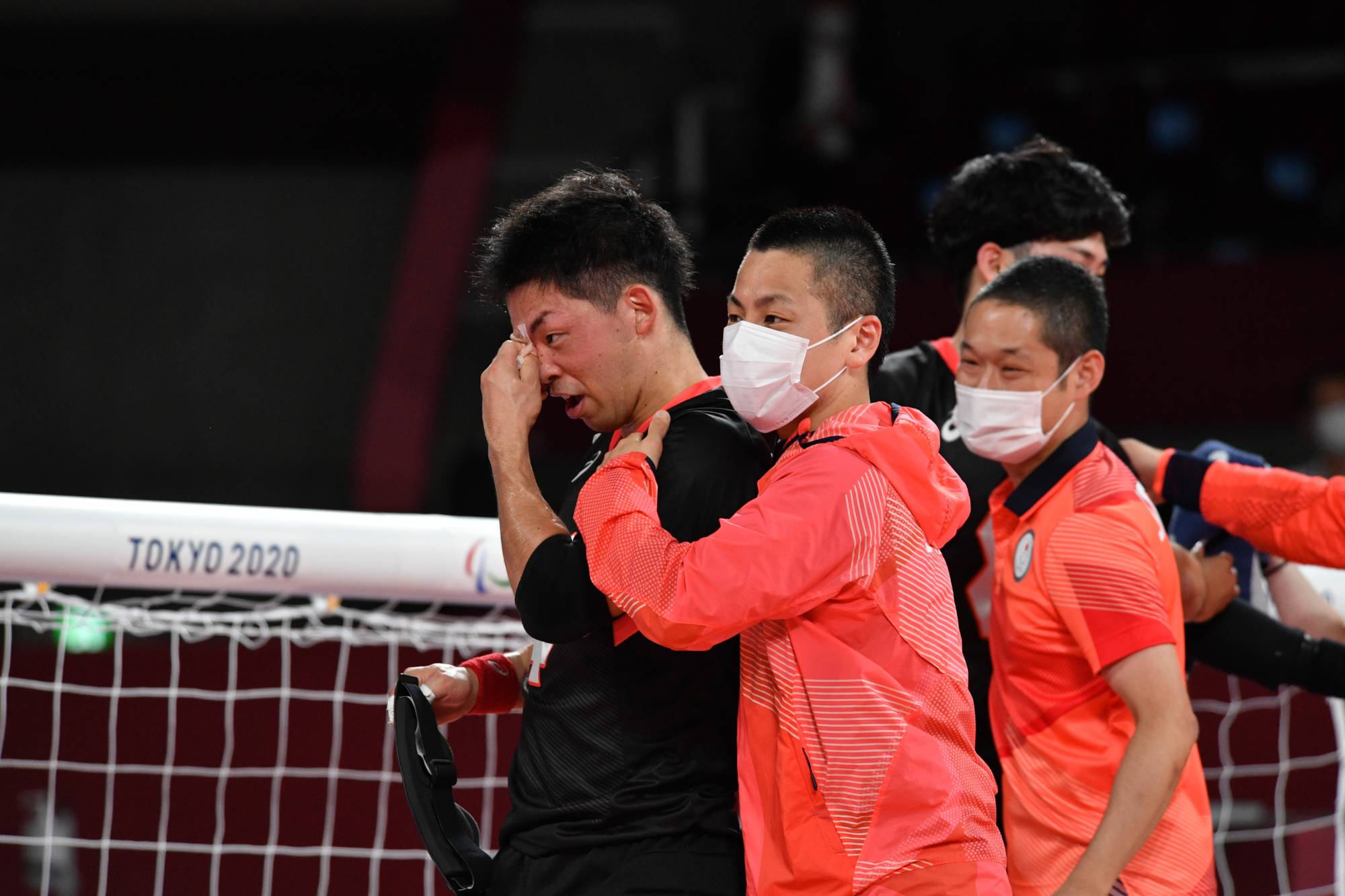
The Japanese men cruised to a 13-4 victory over Algeria, with Kaneko leading the charge.
"We scored 13 goals as a team and I personally finished with seven," Kaneko said. "Up to now, we've just been playing within our system and trying to make throws in good places.
"This was the best result and we want to keep it going into our upcoming games against America and Lithuania."
The Japanese women, who took gold in the event at the London Games in 2012, fell 7-1 against Turkey. Japan had no answer for Turkey's powerful throws. Altunoluk in particular dominated the match with four goals.
The 27-year-old Altunoluk is the only player remaining from the Turkish team that took gold at the Rio Games in 2016. She was the top scorer during the 2016 Games and is off to a good start toward taking that crown in Tokyo.
"First, I wish my team (could be) the champions," she said.
Unlike Japan’s Olympians, the goalball players competed in front of an audience, as children from a junior high school were in attendance. The children remained quiet during the game and clapped after goals and also during timeouts.
“We could hear the cheering behind us,” Kaneko said afterward. “I was able to get some energy from that.”



